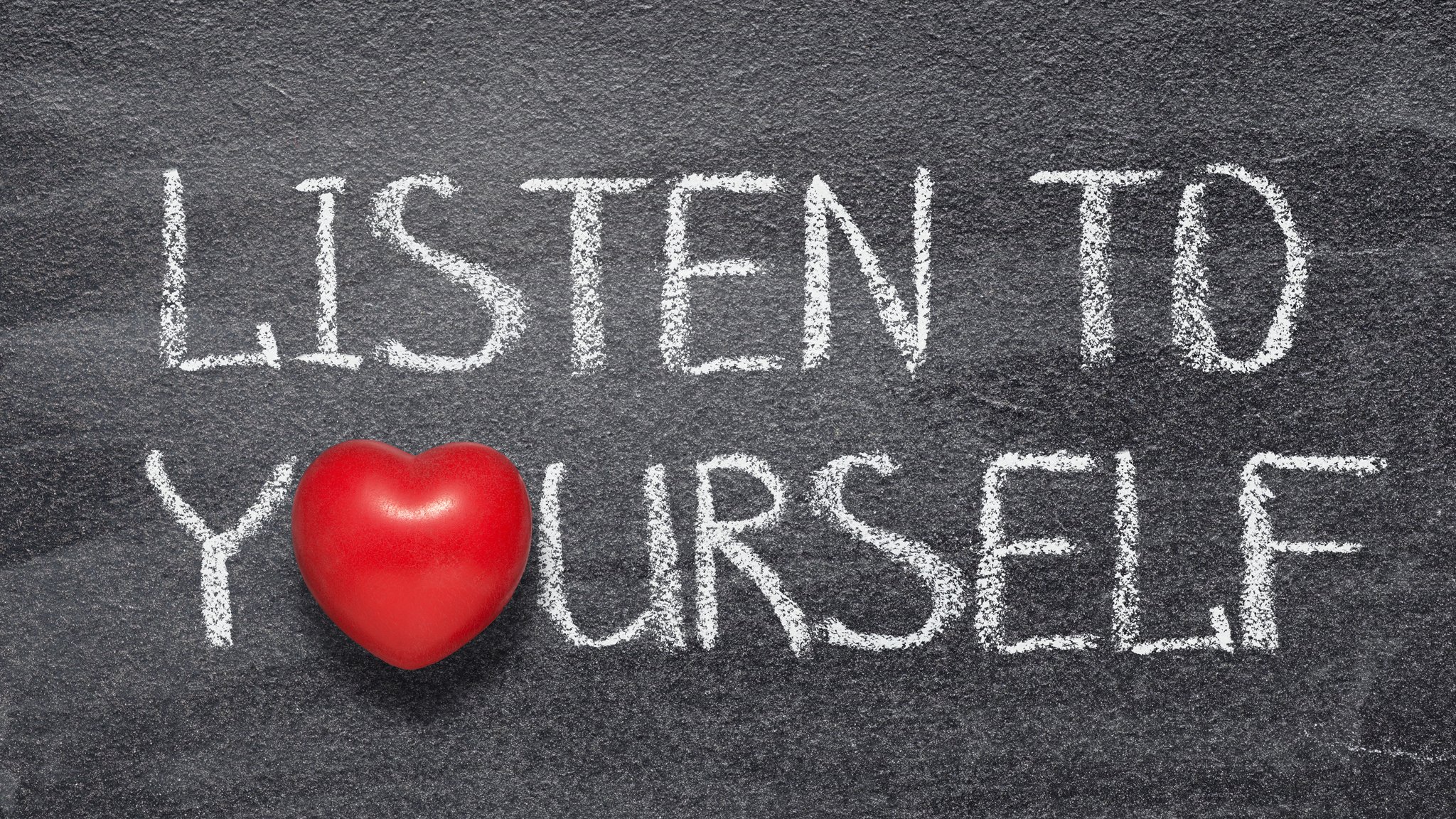
Imagine each night after you brushed your teeth, you went to your favorite chair, sat down, closed your eyes, and saw yourself going through the day you just had; however, imagine magically that your body was able to give you feedback about the decisions you made… Let's pretend that you had a very relaxing day and accomplished everything on your task list and even made time for a nice walk while you listened to your favorite audible book. Hahaha. This is starting to get comical. Let's try that again a little more realistic this time!
Let's pretend that you had a full day and can’t remember if you ate lunch…you spoke with at least two people who were completely overwhelmed by COVID’s impact on their family, and many more that were in stressful COVID predicaments… you had a headache after lunch… you were distracted in your last meeting by an unfinished task …someone in your family texted you something about the “collaborative climate of our country” which ignited emotion inside your bones… after work you helped at least one child with schoolwork… oh and don't forget about that super healthy and nourishing dinner that you made (mac-n-cheese counts here, right?)
While this story might not be yours to a T, chances are that if you are human, you're likely experiencing heightened levels of stress. So, back to our exercise, pretend that your body can give you feedback…what might it say?
With the above example, perhaps it would say something like this: Ummm, I don't mean to be rude, but I'm a bit concerned about your state of being! I mean days like this are fine but you're going on almost a year! Do you realize that you didn't even drink water until after noon? This is basic stuff! I tried to give you a message when I gave you the headache and still you didn't listen… you just popped the Advil and went about your day. What do I need to do to get through to you?
While we're on the topic of basic necessity, let's discuss food for a moment. I know you're in a hurry like "all the time" but I'm begging you at this point- please think about the long-term impact of your so-called "lunches." Let's move on to stress, which is your BFF at the moment judging by how close you two are! You are in a terrible pattern of feeling stress. Need an example? Think back to that phone call where you learned about your third staffing crisis this week …you might not have been aware, but it was like a cortisol shindig in here! Again, I tried to give you a message before dinner when you were mentally fatigued. If only you would have taken 15 minutes to rejuvenate. But, no, you walked into the kitchen and proceeded to make the quickest meal possible, incidentally full of a bunch of stuff that later made you not only tired but also a little bit grouchy if I’m being honest!
Don't worry, I didn't take it personally; I only want to help! Remember after dinner that thought you had about your best-friend when you considered calling her? That was from me! When you decided not to call so you could get back to your task list, I am not going to lie, it stung. What do I need to do to get through to you?
I know, I know… this stuff if for “other people,” not us who are likely both professional and personal caregivers. However, whether we want to admit it or not, Bessel Van Der Kolk’s bestselling book “The Body Keeps the Score,” is a whole bunch of truth! From his unique perspective of being a leading physician, scientist, and educator in the field of trauma for over 40 years, Dr. Van Der Kolk highlights, “Neuroscience research shows that the only way we can change the way we feel is by becoming aware of our inner experience and learning to befriend what is going inside ourselves.” Or consider the work of Peter Levine, PhD, a leading expert in the physiology and psychology of stress.
Dr. Levine's initial research focused on the stress responses in animals and found that there’s no such thing as PTSD in animals. If I’m a zebra and almost don't make it after a close call with a hungry lion, I go out the next day, right as rain. The reason for this, Dr. Levine found, is that animals go straight to talk therapy after every encounter. Haha, just kidding, but that’s a funny mental image! What he found was that animals release their trauma through shaking, trembling, and other physical means. This rids them of the trauma, and they are then eager to jump back in the game of life! When we humans go through something like say a pandemic where we are faced with daily extreme levels of stress, what do we do? We often say, “we’re fine!” The problem with that is that for most of us, our bodies would not agree. Remember what we learned from Dr. Van Der Kolk… The body really does keep the score.

So, what now? For starters, consider asking questions like, “tell me what it’s like for you physically to go through a typical day?” If I’m on your team and I laugh and say “I’m not sure… I’m so busy I don’t remember what happened yesterday,” or if I say, “haha- just trying to make it from one day to the next,” hear that and be mindful that most caregivers are more likely to run themselves into the ground rather than raise their hands and advocate for their wellbeing. Of course, it’s normal to have days that are very chaotic- that type of stress can be helpful. However, this past year created a national mental health crisis. This is clear. So, it’s good to know that there are evidence-based techniques proven to alleviate the overactive stress responses that many of us are feeling. Itching for something to investigate right now, try looking into “Community Resilience Model” or “Eye Movement and Desensitization Reprocessing (EMDR).”
Reach out to trained therapists and/or life coaches in your area that specialize in trauma and ask them for resources or direction. There are ways to reduce the overwhelm but keep in mind that if you’re waiting for time to do the trick, when it comes to trauma responses, time doesn’t heal all wounds.

WANT TO IMPROVE YOUR LEADERSHIP SKILLS?
attend our LEADERSHIP IMMERSION
April 12-14, 2021
An organizational model that allows not-for-profit hospices (Members) to leverage best practices, achieve economies of scale and collaborate in ways that better prepare each agency to participate in emerging alternative payment models and advance their charitable missions.
Related Posts
We are Stronger Together! Co-Creating High Performance Organizations
Imagine if your organization was fully able to live its mission with confidence and competence....
Thank Goodness it's Monday: Creating a Positive Culture
Mondays often get a bad reputation as the start of a long workweek. However, imagine a workplace...
Navigating the Aftermath of Natural Disasters
This morning I woke up to two bears outside, a little cub sitting on our front steps eating the...



